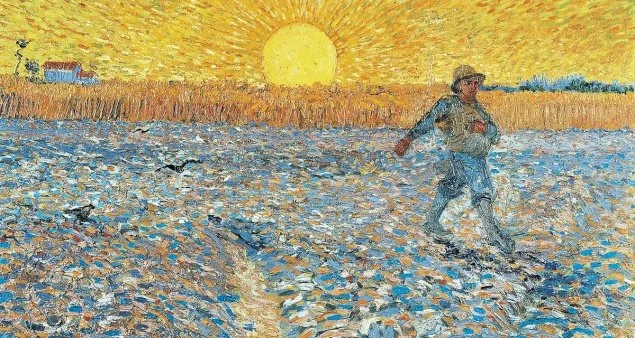Meditation of His Beatitude Patriarch Cardinal Pierbattista Pizzaballa for the XV Sunday in Ordinary Time, Year A
Below you can find the Meditation of His Beatitude Patriarch Pierbattista Pizzaballa, Latin Patriarch of Jerusalem, for the XV Sunday in Ordinary Time, Year A, Sunday 16 June 2023.
Mt 13:1-23
The Gospel passage for this 15th Sunday (Mt 13:1-23) is the beginning of Jesus' third discourse reported by the evangelist Matthew. It is the discourse that Jesus delivers by telling a series of parables, of which today we hear the first one, that of the sower.
It is a complex passage, which is structured in three parts, preceded by an introduction (Mt 13:1-3): in the first part (Mt 13:3-9) Jesus tells the parable; in the second part (Mt 13:10-17) the disciples approach Him and question Him as to why He speaks to people in parables; in the third part (Mt 13:18-22) Jesus explains the parable to the disciples.
Fisrt and foremost, I would like to pause on an apparent oddity: Jesus tells the parable to everyone; then He seems to say that only the disciples can understand it. Finally, he explains the parable precisely to the disciples, who seemed to be the only ones who understood it.
Now, this seems to me to be an important detail: Jesus tells the parable to everyone, like the sower who sows his seed in all soils: he does not choose only some, he does not make distinctions, he does not spare his gift. He accepts the risk that his gift will be lost, for this is the logic of love. The parables highlight the different types of listening, of accepting Jesus' proclamation.
The parable, then, is like a seed, which does not immediately reveal its mystery, which does not immediately bear its fruit: it depends on who welcomes it, on how one welcomes it. Some understand it, some do not; some harden their hearts, some open them; some listen without understanding, some listen and understand, and bear fruit.
We find the difference in these diverse attitudes in v. 10: "Then the disciples came to him and said, 'Why do you speak to them in parables?'"
What allows the Word to go down deep, to bear fruit, is the attitude of the disciples who have the courage, after listening without understanding - like everyone else - to approach Jesus and ask questions. The disciples are not better, they do not have something more than others. They simply remain within a relationship with the simplicity of those who admit they do not understand, who accept that they do not know, but do not run away, do not close their hearts.
Jesus remains a mystery that exceeds the possibility of any man's knowledge, but different are the reactions of those who meet and hear him, just as different are the soils on which the seed falls.
The disciples “came to” Jesus, an expression that recalls the one we heard last Sunday, when Jesus invited all the weary and fatigued to come to Him (Mt 11:28) to know the Father and find rest: and “coming to” says a movement, a decision of the heart, a search, a willingness not to stop in the face of what eludes us, a desire to know and to be open to the power of the Father's love, which, like a seed, makes life blossom. This is what the disciples do in today's Gospel; they draw near…
This Meditation was originally published on the website of the Latin Patriarchate of Jerusalem. Please click here to read the full text.

